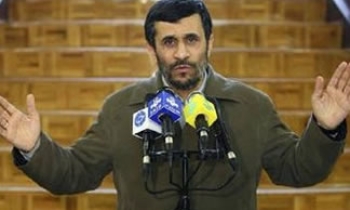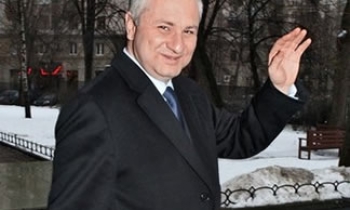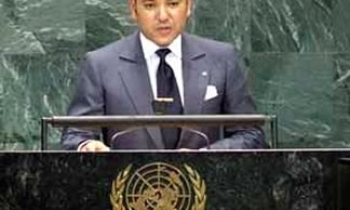This is the month that Michael Powell, chairman of the FCC, limps off into the sunset, leaving behind a lot of large, disappointed media companies. It’s not how the movie was supposed to end. Back in June 2003 Powell proposed loosening the rules of ownership so that big media could get even bigger, but the U.S. Court of Appeals for the Third Circuit sent him back to the drawing board.
Then, this January, the Bush administration abandoned plans to ask the Supreme Court to overrule the Court of Appeals. No one knows what’s next, but the forces of media concentration are no longer presumed to be the endgame winner.
Beneath these legal and political particulars, meanwhile, is a tidal pull from the public. The ownership debate was poorly covered, yet an impressive number of Americans tuned in and decided that big media – so much in their face already – was big enough, thanks. An unusual left/right coalition fought the attempted deregulation, and Powell eventually learned that what the public thinks matters. People correctly sensed the inherent danger of too much media power in too few hands. This is a wonderful development.
Yet the perception that spawned it has a downside for the press. To the extent that people see media as a self-serving behemoth they may disconnect from the behemoth, including the part of it that produces the news. If journalism is seen as just another hungry special interest, the public will toss the good out with the bad. It may already be happening. David Cay Johnston of The New York Times, in a plaintive letter he posted on Romenesko last month, observed a public/press disconnect that most of us in the business have felt:
Just what has gone wrong in American journalism? Fewer people pay attention. More of those who do . . . reject all or part of the news. There is a hostility and suspicion that reporters and editors and producers detect . . . What does it mean for our democracy that so many people ignore or disbelieve the people whose job it is to watchdog our government? What does it mean that trust seems to be under broad assault?
Johnston is onto something, but what, exactly? Voices from the right will tell you that the disconnect is happening because elite newsrooms lean left, and voices from the left say it is because elite journalists tilt toward political and corporate power. Both arguments have merit, though they are often exaggerated for political ends. Other factors are less discussed.
One is that there is simply too much noise, that getting straight news now from this hyped and opinion-loaded beast feels like trying to drink from a fire hose. Another theory is that the audience itself has changed, and has retreated from civic life, a possibility that our publisher, Evan Cornog, raised in the January CJR.
All that individual journalists can do, as we all think through these challenges, is rededicate ourselves to journalism’s central mission and find ways of explaining that mission to the public. If we want people on our side, in other words, we have to do work that actually benefits them. And we have to explain ourselves. Thus we applaud the coalition of organizations behind Sunshine Week (www.sunshineweek.org), who are making an effort between March 13 and 19 to promote access to public records.
More such efforts are in order. More to the point, we salute those journalists who are quietly fighting to stay on mission – the editor who talks his publisher into another education correspondent, the station manager who gives a reporter more time, the columnist who remains intellectually honest, the features editor who rolls the dice on something deep. The quality of our press and our democracy really are linked. This new day for journalism requires an old-fashioned faith.









